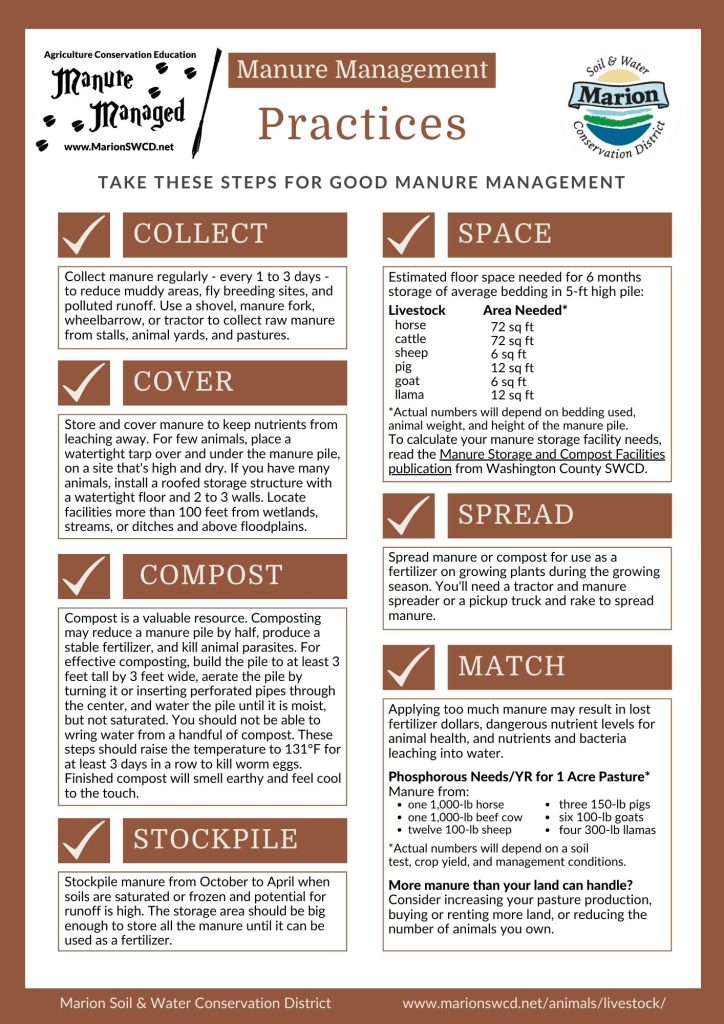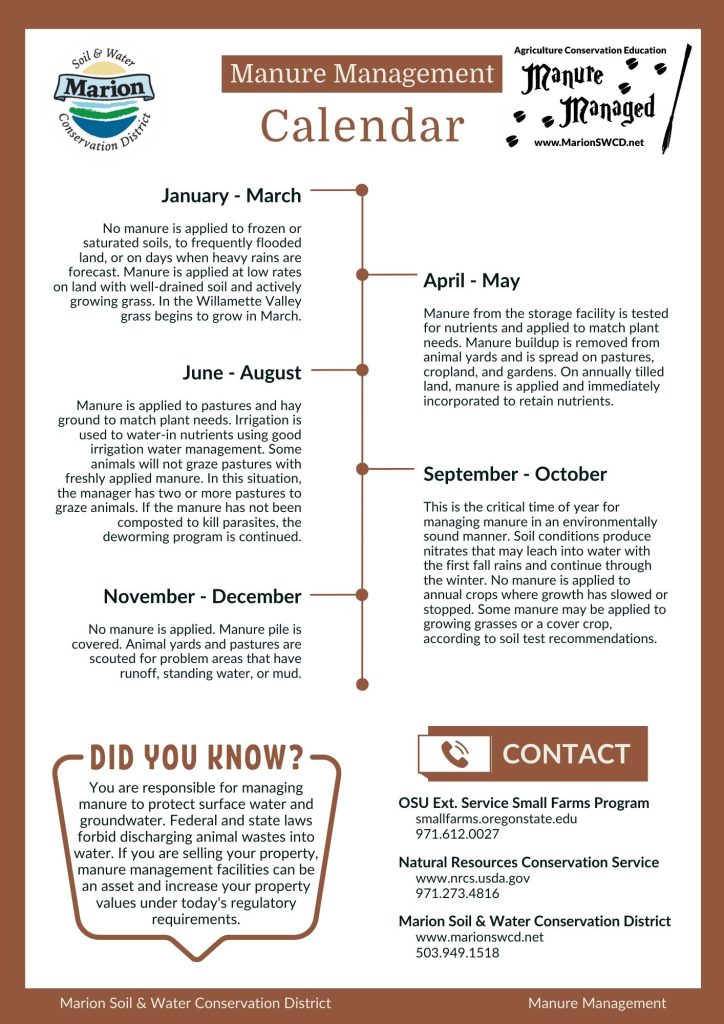
Ag Conservation Education (ACE) is a youth-centered program of Marion SWCD. Students who participate in ACE will learn techniques for managing mud and manure. Students will receive education at their 4-H or FFA meeting or by watching a pre-recorded presentation online. Enrolled students receive a tarp for covering manure piles. Upon successful completion of the ACE program, students receive a certificate that can be listed on resumes, record books, and award applications. There is no cost to participate in ACE.
Manure Management
Having livestock means having manure. Manure can be an issue or an asset, depending on how it’s managed. Participate in ACE to become a certified Ace in Manure Management!
Good
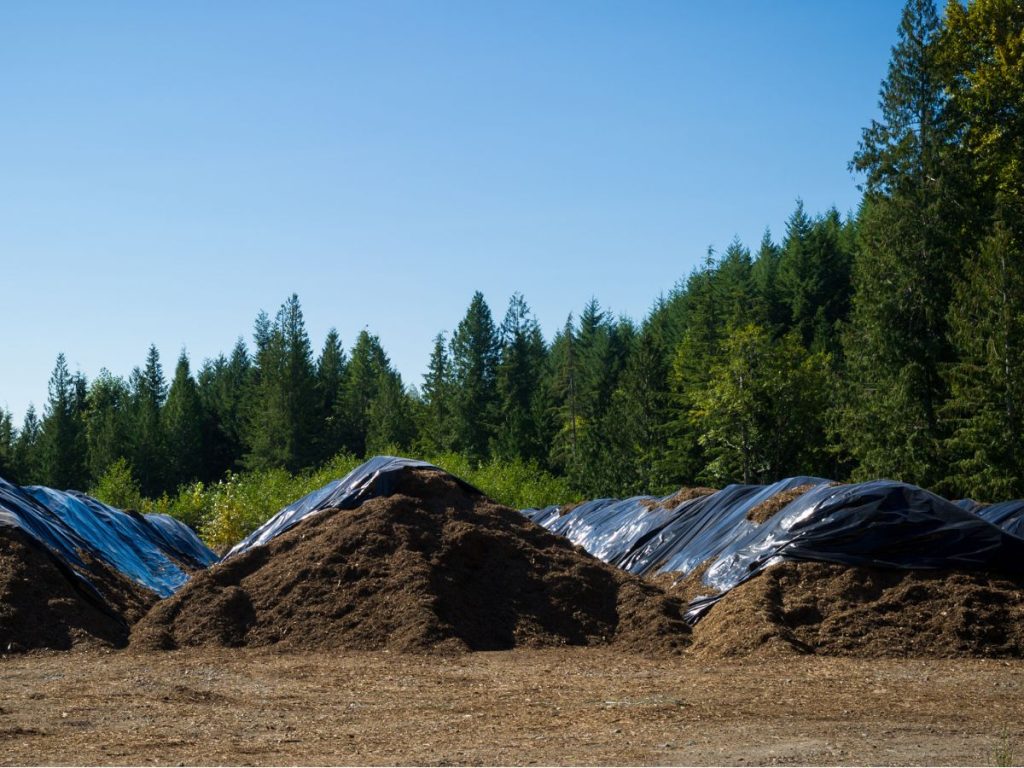
Better
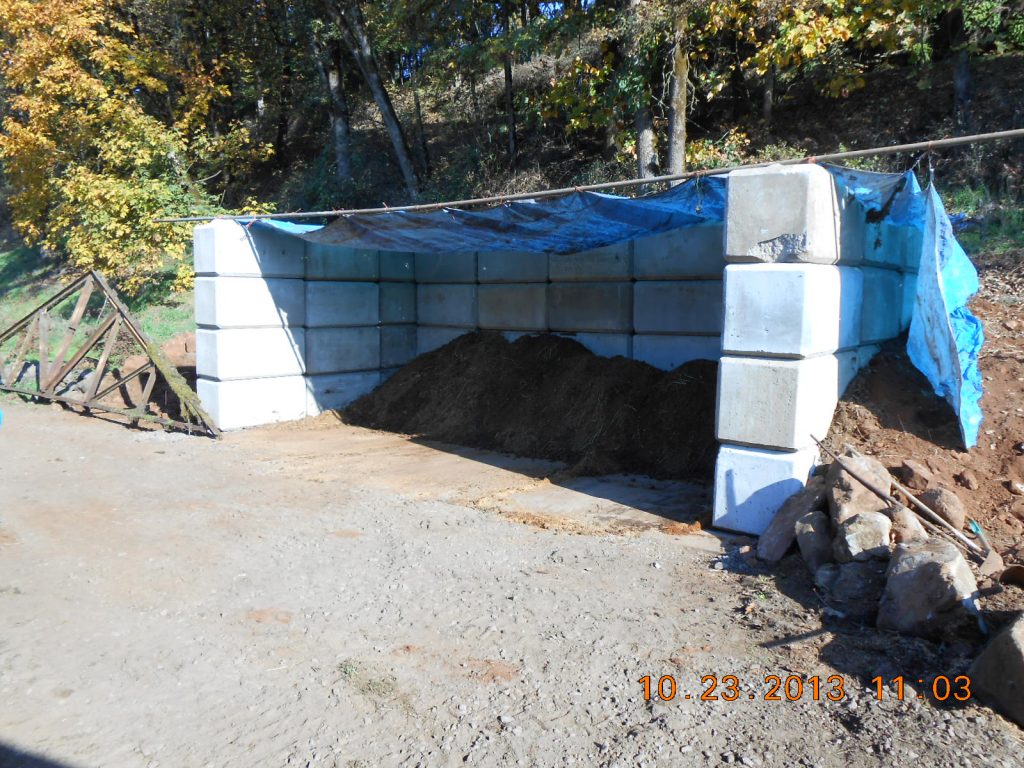
Best
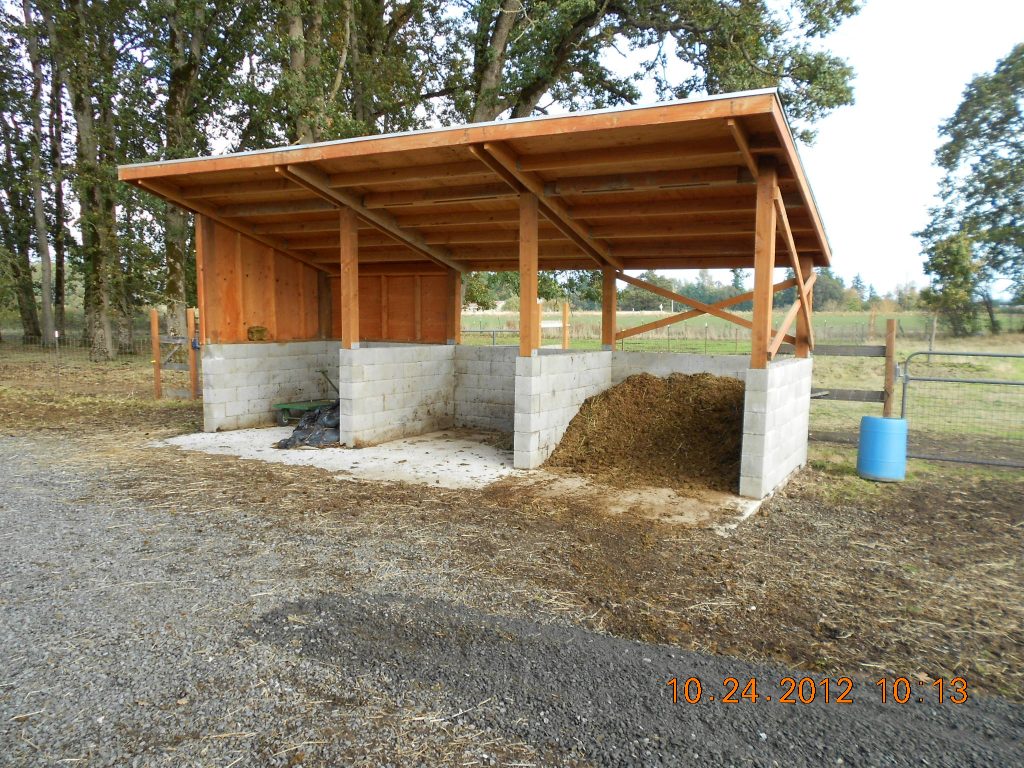
Mud Management
Mud can be caused by a number of activities and conditions, including increased surface water, high traffic areas, highly organic soil, and the lack of ground cover. If not managed properly, mud can be hazardous to animal health, causing sickness and parasites. In addition, runoff from a muddy property will have high levels of sediment that contribute to water pollution.
6 Techniques for Reducing Mud
Reducing the amount of rain and water that runs through a pasture and animal yard will greatly reduce mud production. Ideally you want to divert water to a wetland, stream, ditch, bioswale or other safe outlet before it passes through animal areas. Here is a list of additional techniques for reducing mud production on a property.
- Establish a Sacrifice Area for Animals A sacrifice area is an alternative animal housing area used to keep animals off the pasture during the wet months. This area can also be used to care for sick or injured animals. Locate the sacrifice area away from water sources and plant a vegetation buffer around the area to reduce the chance of contaminating the water. The appropriate size depends on the type and quantity of animals that will be held. For longevity, the Marion SWCD recommends using crushed gravel for a base material.
- Pick up Manure Regularly Manure, if not properly managed, can leach into ground and surface water causing pollution. Animals produce a lot of manure and without regular management it can become overwhelming quickly. Ideally manure should be collected every one to three days to reduce polluted run-off, fly breeding sites, and muddy areas.
- Use Appropriate Footing Using certain types of footing material can make cleaning sacrifice areas easier with minimal material loss. Livestock-friendly hog fuel, wood chips, 5/8-minus gravel, or sand are good choices for footing.
- Install Gutters and Downspouts Things to consider include the providing adequate slope for the discharge, allowing for runoff to empty outside of the sacrifice area, use a protective covering to avoid damage from livestock.
- Use Vegetation as a Mud Manager Leave a grassed or vegetated buffer downslope from the sacrifice area to filter runoff.
- Rotate Water Trough Rotate water trough placement areas to avoid mud and manure buildup.
Resources

Ag Conservation Education Program Flyer
Print the ACE program flyer (3/page) to share with your 4-H or FFA club and generate interest!

Rural Living Handbook
The Rural Living Handbook contains basic information and identifies resources for new and long-time residents of rural Marion County. Get connected!
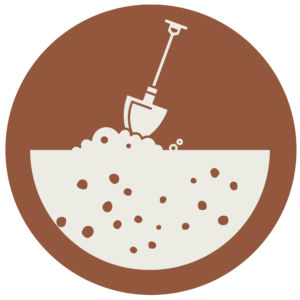
Manure Management Handout
This handout includes steps for good manure management and a management calendar.
Contact Us
Our team can help with all your concerns.


